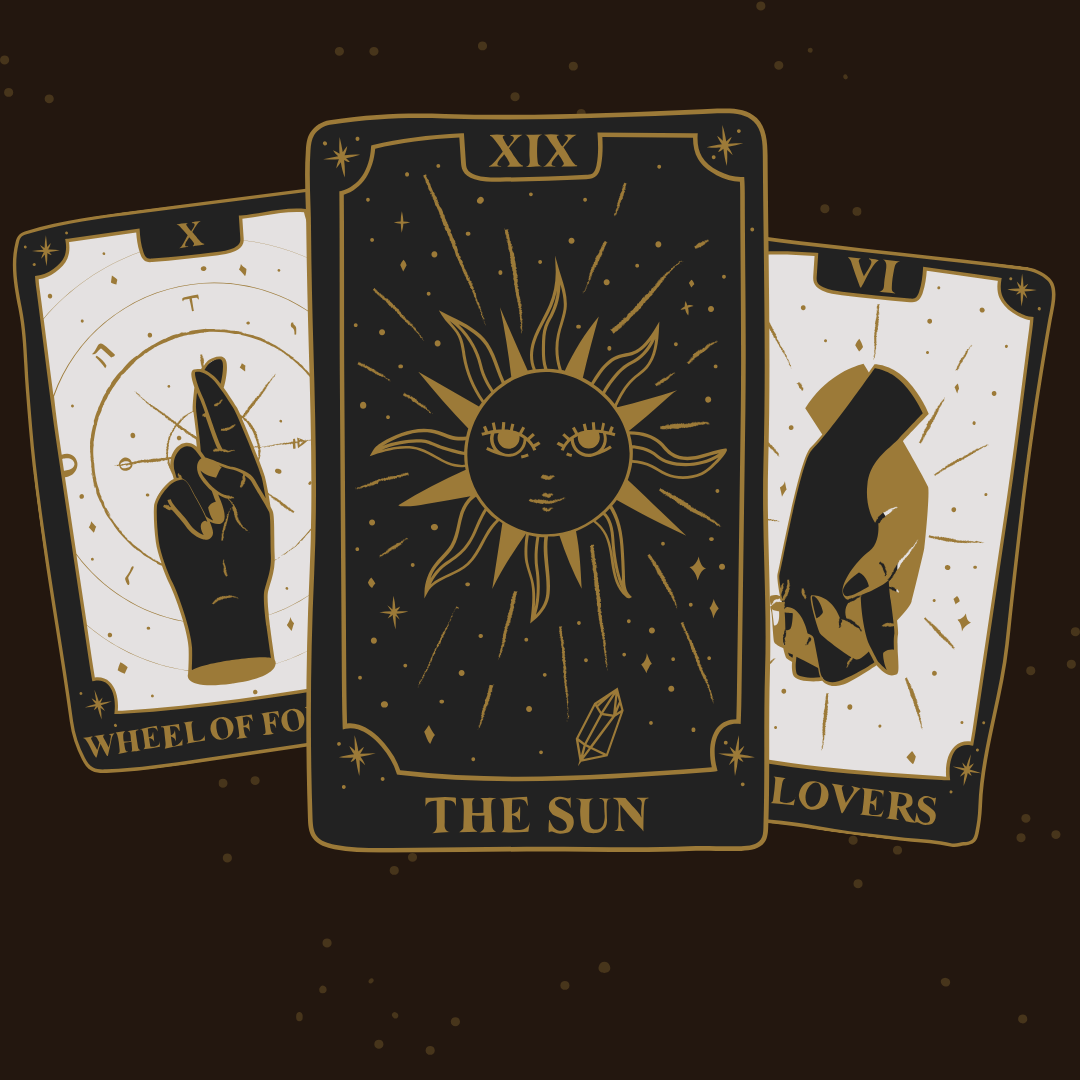Your beginner’s guide to reading the cards & trusting your intuition
Tarot 101
Welcome to the Cards
Tarot is a deck of 78 illustrated cards — part art, part symbolism, part intuition.
Think of it as a mirror for your inner world, a conversation starter with your own wisdom, and a beautiful ritual for slowing down.
In my world, tarot isn’t about predicting the future — it’s about reflecting, exploring, and connecting.
Kind of like crafting the perfect cocktail: the magic happens in the mix.
The Deck at a Glance
Major Arcana – The Big Stories (22 cards)
These are the milestones and plot twists — moments that shape your personal journey.
From The Fool (fresh starts) to The World (completion), they’re your life’s major chapters.
Minor Arcana – The Everyday Moments (56 cards)
These cards focus on day-to-day themes, split into 4 suits:
Cups – emotions, relationships, intuition
Wands – creativity, passion, action
Swords – thoughts, challenges, communication
Pentacles – work, finances, body, nature
Court Cards – The Cast of Characters
Pages, Knights, Queens, and Kings — representing personalities, roles, or energy you can embody.
How Tarot Works
Tarot is not about “this will happen to you next week.”
It’s about noticing symbols, stories, and feelings, then applying them to your own life.
You bring the meaning to the cards as much as they bring meaning to you.
Anatomy of a Card
Each card has:
Name (The Lovers, Three of Wands, etc.)
Imagery – symbols, colors, patterns that carry meaning
Number or suit – gives it structure in the deck
Orientation – upright or reversed (optional for beginners)
💡 Pro Tip: Before running to the guidebook, take a moment to ask: What’s the story here?
Reading for Beginners: 3 Simple Steps
Set Your Intention – Ask a question, or simply invite insight.
Shuffle & Pull – Draw 1–3 cards.
Interpret – Look for themes, feelings, and personal connections before checking a reference.
Beginner-Friendly Spreads
One-Card Pull – Daily reflection.
Three-Card Spread – Past / Present / Future, or Situation / Advice / Outcome.
Zodiac Season Spread – My favorite: tailor your spread to the current astrological season. (Example: Leo Season – What’s ready to shine? What to protect? Where to be bold?)
Tips for Learning Tarot
Keep a journal — note your question, the cards, and your first impressions.
Don’t force memorization; learn through experience.
Your intuition matters more than a “perfect” textbook definition.
Tarot, Astrology & Cocktails — My Signature Blend
At Cosmic Cocktails by Eugene and Tonic, I mix the symbolic world of tarot with the flavor world of cocktails.
Each season, you’ll find:
Zodiac-themed spreads
Tarot-inspired recipes
Pairings that match your card’s mood with a drink’s flavor profile
Because sometimes the best way to explore your inner world… is over a gorgeous cocktail.
Resources I Love
Beginner Decks: Rider–Waite–Smith, Modern Witch Tarot, Light Seer’s Tarot
Guidebooks: Seventy-Eight Degrees of Wisdom by Rachel Pollack, Tarot for Self-Care by Minerva Siegel
Online: Biddy Tarot, Labyrinthos
✨ Your tarot journey starts here. The only thing you need is curiosity… and maybe a cocktail shaker.

